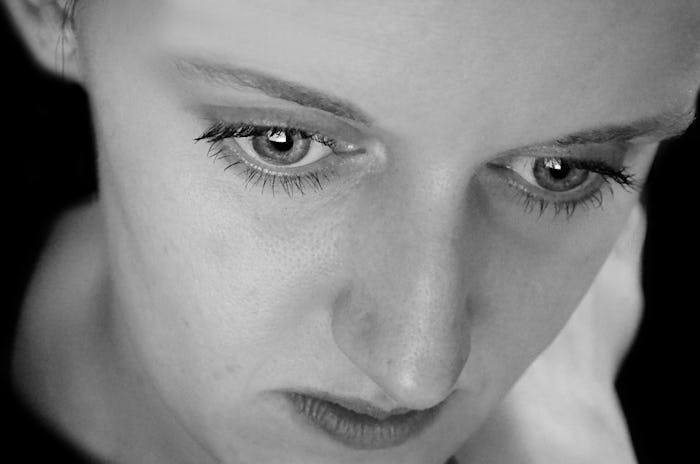Life
Are Postpartum Anxiety & Postpartum Depression The Same Thing?
The emotions that follow childbirth can be a bit confusing. During your pregnancy, everyone told you how wonderful motherhood would be and all the joy that babies bring. Once your baby is born, you love her tremendously, but there may be some strong feelings standing in the way of being the mother you envisioned. No one knows if they will struggle with a postpartum mood disorder when they become pregnant, so it's important to know what symptoms to look for. And because many symptoms are similar, you may ask are postpartum anxiety and postpartum depression the same thing? This is an important question to answer, because knowing which is which will help determine how you move forward.
According to the Center for Women's Mood Disorders page on UNC Medical School's website, although postpartum anxiety and postpartum depression are two different things, one tends to coincide with the other. This does not mean all women with one condition will have the other, these two can occur independently for some mothers. What sets these two mood disorders apart are the symptoms and severity at which they are experienced, as the website for Massachusetts General Hospital Center for Mental Health reported. Typically, one condition will emerge as the dominant one and can be properly treated.
Postpartum Anxiety (PPA)
The first step in identifying what you're experiencing is to know the signs of PPA. According to Baby Center, the following are symptoms associated with postpartum anxiety disorder.
- Extreme anxiety or irritability
- Restlessness and agitation
- Shortness of breath
- Chest pains or discomfort
- Sensation of choking or smothering
- Dizziness
- Trembling and shaking
- Sweating
- Faintness
- Hot or cold flashes
- Fear of dying, of going crazy, or of losing control
New moms experience these feelings starting immediately after the birth as well as gradually over the first year of their baby's life, according to Psychology Today.
Postpartum Depression (PPD)
Hormonal changes and the added responsibility of a new baby can bring on a buttload of feels. Although it's normal for new moms to feel a bit moody and weepy, if your mood never lightens, becomes severe, or you feel you can't control your emotions, things could be developing into PPD. To learn the signs, Mayo Clinic provided this list of postpartum depression symptoms.
- Depressed mood or severe mood swings
- Excessive crying
- Difficulty bonding with your baby
- Withdrawing from family and friends
- Loss of appetite or eating much more than usual
- Inability to sleep (insomnia) or sleeping too much
- Overwhelming fatigue or loss of energy
- Reduced interest and pleasure in activities you used to enjoy
- Intense irritability and anger
- Fear that you're not a good mother
- Feelings of worthlessness, shame, guilt or inadequacy
- Diminished ability to think clearly, concentrate or make decisions
- Severe anxiety and panic attacks
- Thoughts of harming yourself or your baby
- Recurrent thoughts of death or suicide
Although postpartum anxiety and postpartum depression are both mood disorders experienced by women after having a baby, they have some distinct differences. Understanding these differences can be the first step in receiving the right type of treatment and recovery. If you are experiencing any of these symptoms, reach out to your doctor who can help you get the support you need during this time.
